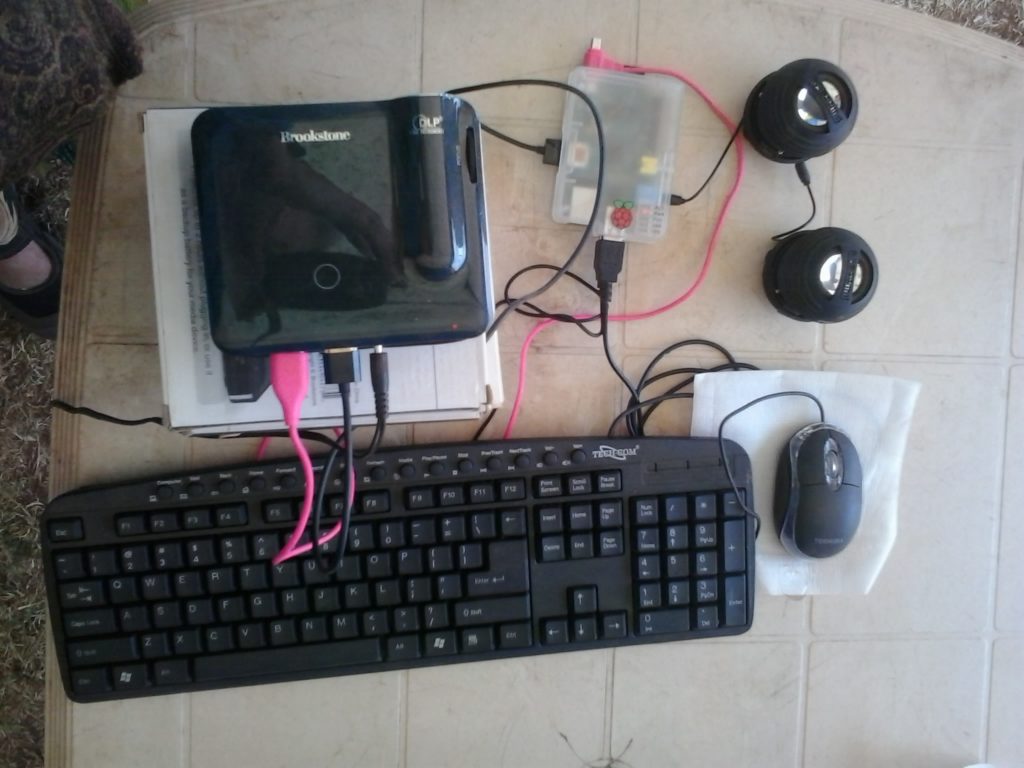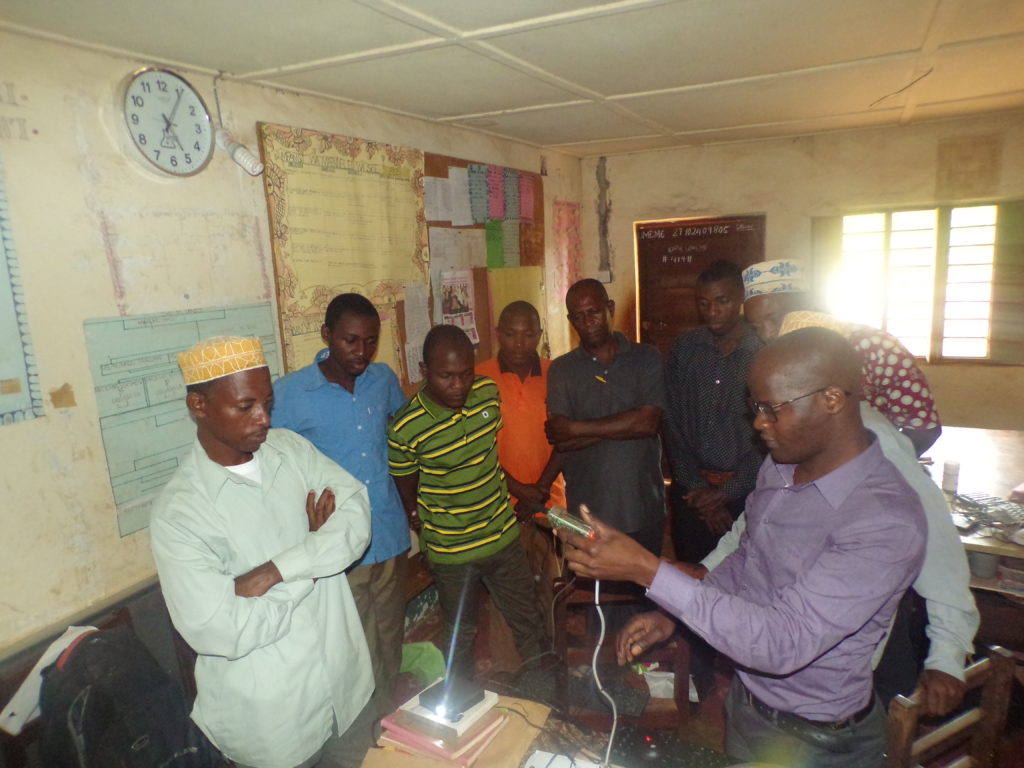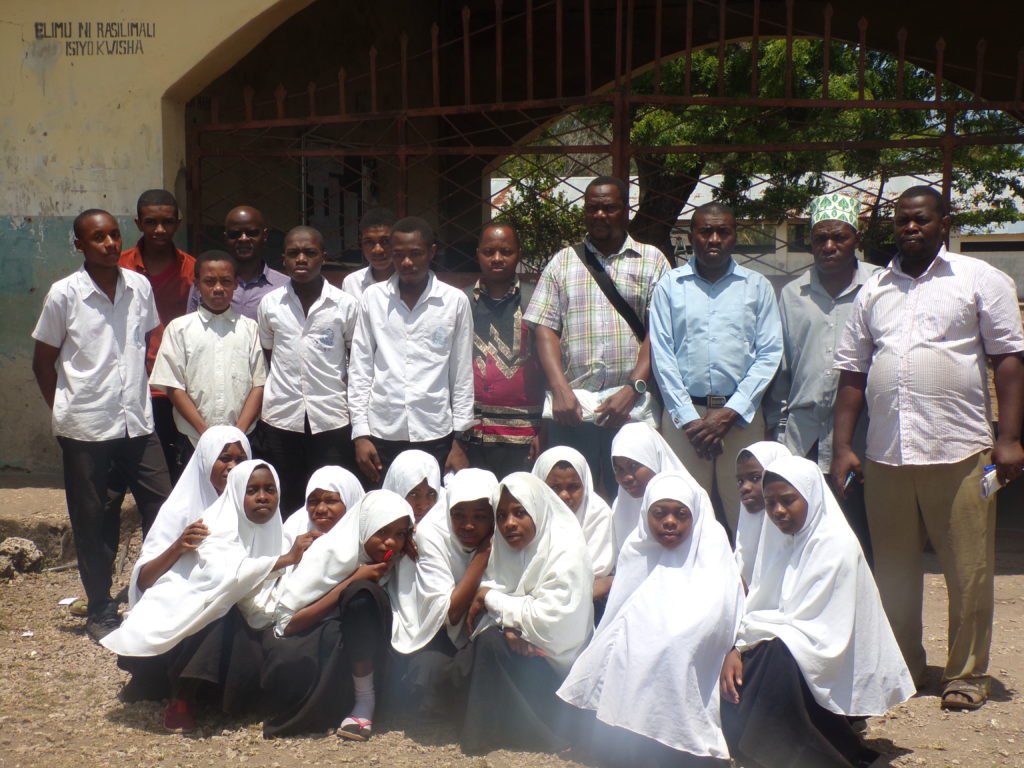In early October, staff from the Potential Enhancement Foundation (PEF), Powering Potential’s sister organization in Tanzania, traveled from the Tanzanian mainland to the archipelago of Zanzibar to perform system maintenance and parts replacement on Pi-oneer computer systems. The team was led by Eng. Albin Mathis, PEF’s Executive Director.
Albin and his crew were warmly welcomed by the teachers and staff of the 16 Zanzibar secondary schools in which Pi-oneers are used. To make the best use of their one-week visit, the crew met with and trained these professionals at three separate training centers, where they also made the system repairs.
Pi-oneer was introduced to Zanzibar by Powering Potential in 2016. Pi-oneer is an innovative teaching tool, comprised of a Raspberry Pi computer with a mobile projector, screen, solar recharging unit and RACHEL offline educational content that includes Khan Academy videos and Wikipedia articles. The Pi-oneer emphasizes portability, in that teachers can take the system into classrooms to display video and other teaching materials to students.

Missing from picture: projection screen, solar recharging unit
At a unit cost of $1,000, the Pi-oneer system is a great starter set. It serves as the perfect initiation into solar-powered computing.
The visit to Zanzibar gave the team good insight into strategic planning for maintenance. In the five years since Pi-oneer was installed in Zanzibar, the technical team has been communicating with teaching staff via the WhatsApp messaging and video application. Zanzibar is at a distance from the mainland headquarters of PEF, making it difficult to plan frequent visits.
The team learned that WhatsApp alone is insufficient as a troubleshooting tool. They found that the equipment was not, in a number of cases, being maintained optimally by those in charge of using it. This was due to a number of factors. Teachers were transferred from one school to another and newer teachers were not always well-trained. Some teachers lacked basic troubleshooting skills. Some were unfamiliar with all of the components of the system.
Several valuable lessons were learned as a result of this visit; primary of which is that onsite equipment maintenance and training of teachers needs to be done more frequently. New teachers need to be educated uniformly regarding the composition, functioning, and troubleshooting of the Pi-oneer system. They also need to be better trained on how to navigate the educational content.
All in all, the trip to Zanzibar was a success, in that the systems are now up-to-date, the teachers are better informed, and the tech team is better equipped to deal with future maintenance and training issues.

A highlight of the trip was the team’s visit to the Ministry of Education-Zanzibar (MoEZ), where they met the Director of Information and Communication Technologies (ICT), Mr. Omar Said Ali.
Mr. Ali is most willing to coordinate our program initiatives with MoEZ and he would like to see PEF one day pilot a SPARC computer lab in Zanzibar, as the next step forward in solar-powered computer integration.
PEF and Powering Potential have enjoyed good relationships with all levels of national, regional, and local leadership throughout the fifteen years of our existence. During this time, the country’s president, ministers, and ambassadors have met with our Founder, Janice Lathen, and they all have been impressed by and supportive of our work.
In 2015, Tanzania’s then-president, Jakaya Mrisho Kikwete, wrote to Janice, who participated in an Education Week fair,
“I was really very impressed with the good work you exhibited at Dodoma. I therefore encourage you to continue with your efforts to enable people in rural areas to enjoy the benefits of information and communication technology.”
Our maintenance team received positive feedback as well from those whom they trained at Zanzibar. Among the quotes was this, from teacher Mkubwa from Makoongwe: “I would like to welcome the team again …as this was a very useful session.”
The teachers are now better equipped to use and maintain the Pi-oneer system. The PEF team returned to the mainland energized and with increased knowledge about educating teachers and keeping equipment in top physical condition. A win-win for all!
Please continue to support Powering Potential so we can reach more students and upgrade existing equipment. Thank you!
